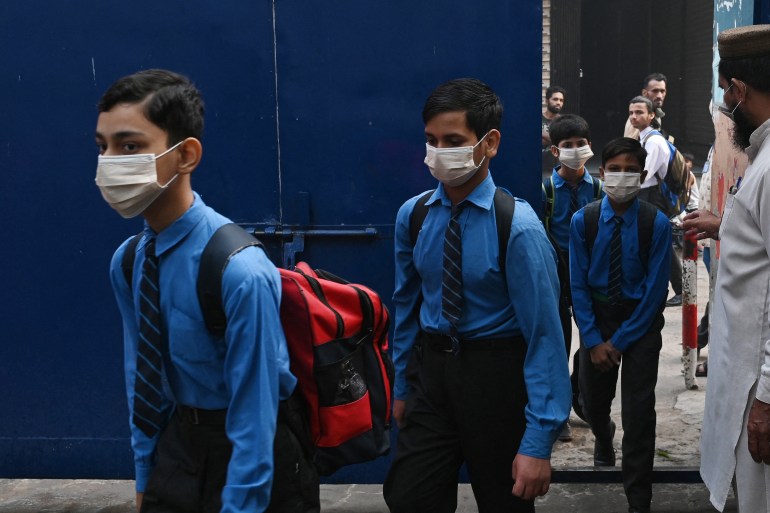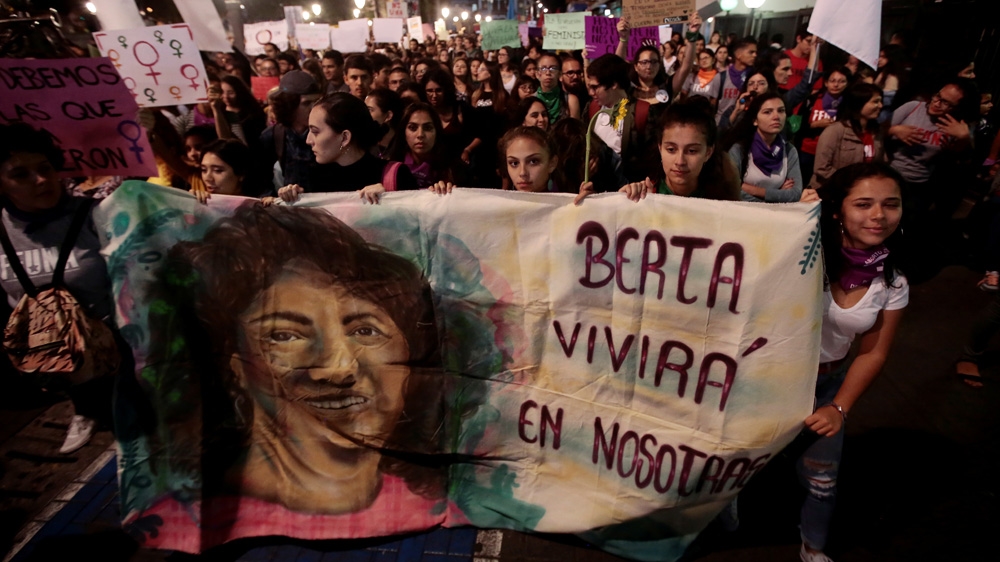Thick smog shuts down Pakistan’s Lahore, sickens tens of thousands
Authorities shutter schools, markets and parks for four days due to the toxic air after tens of thousands fall ill.
A wave of thick, toxic fog has enveloped Pakistan’s Lahore city, causing tens of thousands of people to fall ill in one of the world’s most polluted countries.
The noxious fog in eastern Pakistan on Thursday pushed authorities to shutter schools, markets and parks for four days, and driven residents to wear face masks if they must go outside.
Salman Kazmi, a doctor at Lahore’s main Mayo Hospital, advised residents to shelter from the smog, which he said could cause breathing difficulties or infections.
“Wearing of marks and staying at home are the two easiest solutions to avoid getting rushed to hospitals with respiratory-related diseases, infections in eyes and skin diseases,” said Kazmi.

Lahore, once known as the city of gardens for its lush greenery, has grown intensely polluted due to its surging population, now at 242 million people, and rapid urbanisation.
Pakistan consistently ranks as one of the most polluted countries in the world, with air purifier company IQAir placing it third in their latest 2022 report.
That same report ranked Lahore as the most polluted city in the world.
On Thursday, the concentration of PM 2.5, or tiny particulate matter, in the air approached 450, which is 30 times higher than the World Health Organization’s recommended maximum average daily exposure and considered hazardous.
“The weather is such that everyone has a bad throat and bad eyes, and everyone’s health is getting affected,” said Mohammad Salahuddin, a private guard in Lahore.
Experts say the burning of crop residue at the start of the winter wheat-planting season is a key cause of the pollution.




